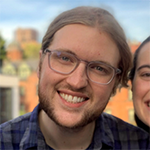
The immersion term experience changed how I view the potential impact of basic research. It allowed me to see that I could effect meaningful change by identifying clinical needs and engineering straightforward solutions to them.

First-hand experience in a clinical environment.

The immersion term is a unique experience of the Cornell BME Ph.D. program and provides first-year Ph.D. students with the opportunity to experience actual clinical practice in a hospital setting and to participate in clinical research at Weill Cornell Medicine and its affiliated New York Presbyterian Hospital - Weill Cornell Medical Center in New York City. The immersion term is completed during the summer following the first year of graduate school and starts approximately in the 2nd week of June through the beginning of August (~8 weeks). The purpose of this clinical summer immersion program is to provide substantial clinical experiences for biomedical engineering graduate students to help shape their understanding and appreciation of challenges and needs in medicine. Each student is matched with a clinician mentor and is encouraged to participate in additional clinical experiences (e.g., shadowing surgeries and other procedures). The mentor selection is driven by the student and their Ph.D. research advisor, in consultation and coordination with faculty at Weill Cornell Medicine. Housing and transportation to and from the immersion term is fully covered for the students.
Students shadow their clinician mentors and their partners, engage in focused study of specific anatomy, pathology, and diagnostics and treatments, participate in an ongoing research directly related to clinical practice, attend a Bioethics seminar, and any additional relevant clinical seminars, and gain exposure to any other aspects of clinical culture.
The goal of the immersion term is for each student to have the opportunity to see first-hand how the results of biomedical engineering impact patient diagnosis and care and to better understand the challenges facing physicians as they try to deliver outstanding patient care. For example, what really happens during a total knee replacement and what are the challenges? BME students scrubbed and one foot away from the patient’s knee in the operating room get the ultimate insider’s look and the opportunity to integrate that information into their thesis research and career!
The specific objectives of the Immersion term are:
For more information, please contact Belinda Floyd, bh42@cornell.edu, 607-255-2573

The immersion term experience changed how I view the potential impact of basic research. It allowed me to see that I could effect meaningful change by identifying clinical needs and engineering straightforward solutions to them.